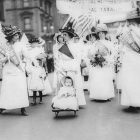Episodia 2.10: Writing About Other People

I spent the past few years writing a memoir about a secret I kept throughout my adolescence, and the book is set to debut next Tuesday. When I was ten years old, a beloved piano teacher in my small hometown was accused of sexually assaulting his young female students. Much of the town couldn’t believe that a pillar of our community would commit such a crime, and many of the adults I knew as a child threw their lots in with him instead of the girls who dared tell the truth about what he’d done. As you might imagine, this caused me and many of my girlhood friends a swell of hurt we buried deep in our hearts—both those who spoke out against the piano teacher, and those who, like me, did not.
Mine is a story about a perpetrator, his victims, and a town full of people who chose sides. All of them are portrayed in the memoir, and most of them are still living. As I wrote the book, I felt the weight of portraying flesh-and-blood humans on the page. I wanted to get it right. I wanted to tell the truth. I wanted to uphold their dignity, when appropriate. And I often wondered—is that even possible?
This quandary calls to mind my recent viewing of the smart animated series, BoJack Horseman. In the show, BoJack is a washed-up sitcom actor who hopes to make the world take notice of him again by writing a tell-all memoir with the help of a ghostwriter named Diane. BoJack’s journey is solipsistic, funny, and sad, but Diane’s journey is equally compelling. As a writer, she spent countless hours interviewing and studying her subject. When BoJack finally reads the finished product, he’s appalled. What Diane sees as a complex, dark, and accurate portrait, BoJack considers a mere collection of all his worst faults.
This is a very real challenge memoirists face when writing about others. Is there even a right way to do it? I don’t think so. If memoirs contain a host of artful memories of things gone unsaid, one has to wonder—what happens in your personal life when they’re finally said? Do your relationships weather the truth of your opinions gone public, or do they wither? I don’t know the answer. It’s a risk I’m right in the middle of taking, and I’m still holding my breath.
I don’t think writing the truth makes you strong by default. I think it makes you vulnerable, which in turn can make you strong. It’s a naked feeling, both writing about yourself and writing about those you once loved, still love, and some you never loved at all. And though we may highly value the opinions of our loved ones, that doesn’t always mean we must ask their permission to write our stories in full.
As I went through the writing and publication process, I found that almost everyone has an opinion about this sticky topic, but no one wants to advise you on it. That drove me crazy. Every worthy memoirist knows that writing ethics expand far beyond what keeps us from being legally liable. We want to preserve the anonymity and self-possession of our characters while telling our stories as openly, honestly, and artfully as we can.
While I may not have specific advice (every story has disparate needs), I do have the choices I made, the lines I drew in the sand. First and foremost, I decided to put myself on trial. I wanted to explore my own shortcomings, regrets, triumphs, and secrets more than I wanted to expose anyone else’s. Anne Lamott has this great quote: “You own everything that happened to you. Tell your stories. If people wanted you to write warmly about them, they should have behaved better.” I love this quote. It helped me and most other memoirists I know write our way through many drafts. It’s also fruitful to consider the ways we might write too warmly about ourselves—the desire to rationalize every bad choice, to mitigate every hurtful thing we’ve done. As I wrote, I tried to follow this guideline: if I turned a scrutinizing eye on one of my characters, I made sure to turn it on myself first.
I also decided I wasn’t going to try to manage how people from my personal life respond to the book. This has been the hardest to follow, mostly because I loathe the idea of causing pain. But I remember that when this scandal occurred and the rumors swirled in my insular hometown, it wasn’t safe to feel our own feelings. It wasn’t safe to feel much at all. If I am to undo—in any small way—some of the harm done so long ago, I need to let people actually have a response, even if that means they disagree with the stance I took. I firmly believe candid discussion is integral in ensuring this kind of tragedy stops happening. Incidentally, this also asks me to stand my ground and stand behind the book I wrote, just as Diane did.
Though I don’t find joy in the fact that I wrote about people from my past, I’m grateful for the ways they were all a part of the world as I first saw it, good and bad. Each person I wrote about became a weight I wore around my neck, and heavy as it became sometimes, it also felt right. The weight urged me to think more clearly, write more truly, and—in my real life—love more deeply.



